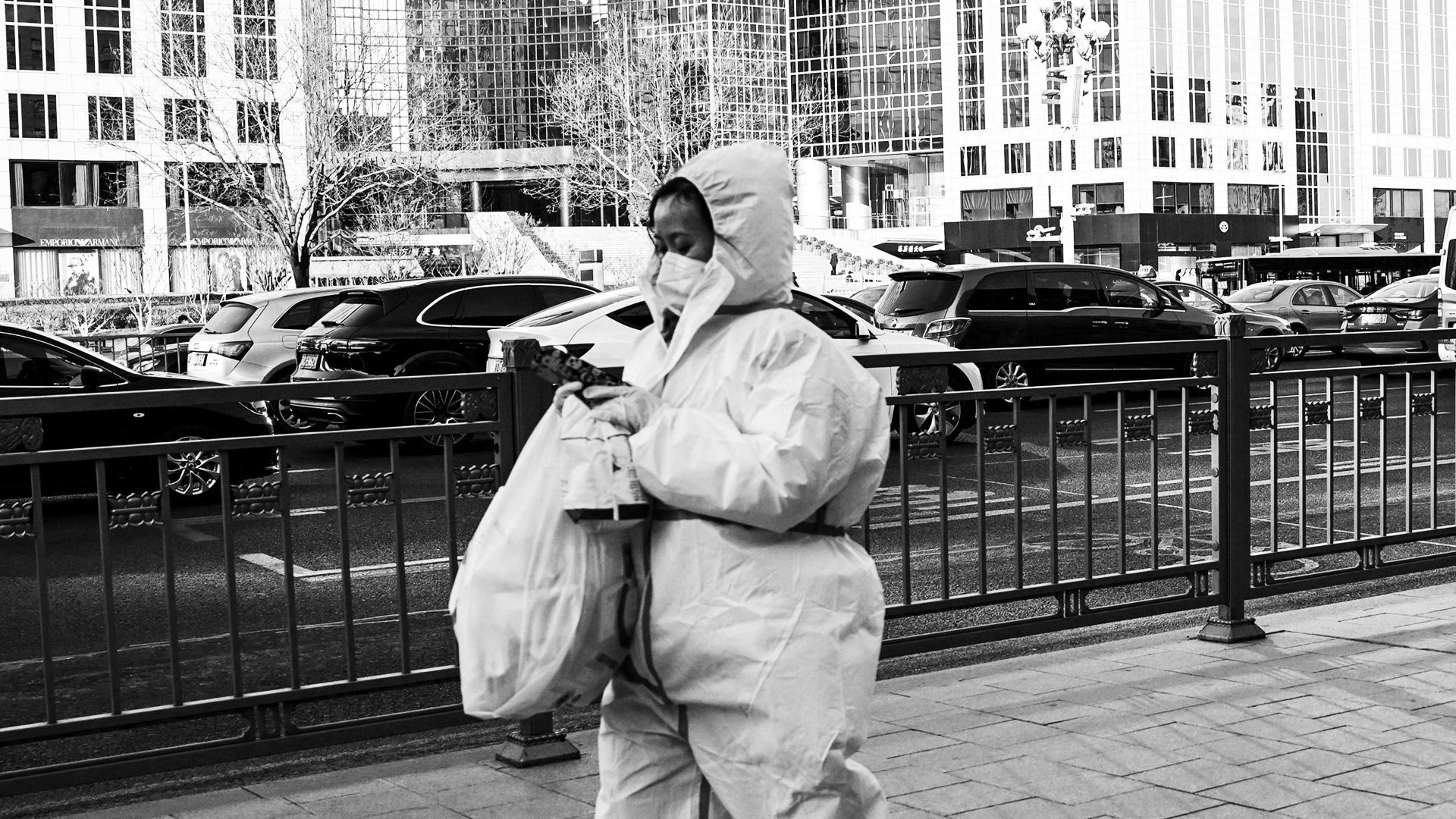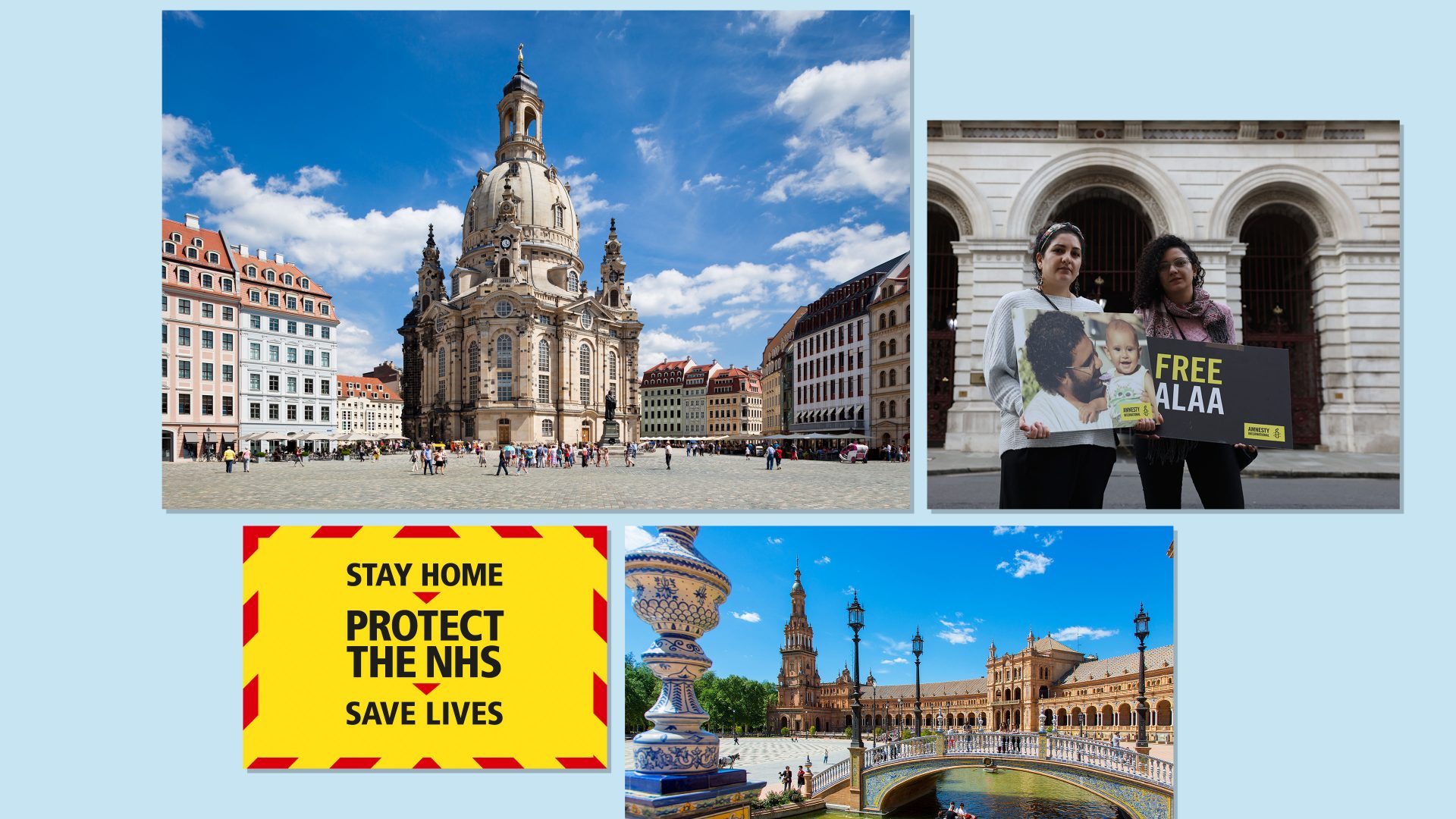It is often said that conspiracy theories have, for all too many of us, taken the place of religion in our lives – a handy way to add some sense of meaning or purpose to the randomness of life. The idea that some group is behind what happens, even if they’re doing so with nefarious intent, is more reassuring than everything being simply uncontrollable and uncontrolled.
Almost three years into the coronavirus pandemic, it feels as if there are similar aspects in how we talk about managing life with Covid. Whether it’s “Independent SAGE” in the UK or “People’s CDC” in the USA, there is no shortage of groups worldwide that lay the blame for the spread of Covid and the resultant deaths it has caused at the policy failures of government.
They are obviously right to at least some extent: countries have had huge variation in both infection and death rates – but the longer life in a world with Covid continues, the less clear-cut things become.
Nowhere is that clearer than the calamity rapidly unfolding across China. The country in which the pandemic originated had, for its first two years, an astonishingly low case rate – by introducing restrictions of severity that would be unimaginable in a democracy, at vast economic cost to itself (and substantial knock-on cost to the wider world).
The cost may have been immense, but the results – at least for a time – were hard to dispute. While first thousands and then hundreds of thousands of people died in different countries across the world, China had barely a case, and managed to reopen with a semblance of normal life long before other countries. Inevitably, people started calling for other countries to attempt China’s “zero Covid” response, a policy that president-for-life Xi Jinping made his flagship.
The problem is you can only shut down for so long, and only shut out the outside world for so long too. Faced with mounting internal dissent at apparently endless strict restrictions and shutdowns – which could be necessary for months or years more for China’s approach to work – the Communist Party took the drastic step of simply giving up and letting Covid rip to an extent even Donald Trump didn’t countenance.
China has decided to embrace denialism to an astonishing extent: as the government records few or even zero Covid deaths, video footage shows morgues full of bodies and hospitals absolutely overwhelmed with severe Covid cases. China appears to be making no effort to “flatten the peak” – to avoid health services having so many patients that even survivable cases lead to fatalities due to lack of treatment capacity.
Compounding this is China’s failure to vaccinate its population – fuelled by a range of factors, including the government’s decision to rely on China’s Sinovac rather than vastly more effective western-produced vaccines. Added to this was the apparent contradiction between an ongoing “zero Covid” strategy and a vaccine primarily intended to ameliorate symptoms for those who catch it.
Trying to assess the genuine scale of the Covid wave sweeping China now will be enormously difficult, if not impossible. When the government will flat-out lie and cover up its statistics, and it is difficult for public health researchers to operate autonomously, it becomes a matter of guesswork.
It is clear that no one would advocate for a replication of China’s actual policy decisions to date, but it is still a common refrain among certain quarters that some version of “zero Covid” is a commendable policy goal – and that lockdowns should still be on the table, even as public and political sentiment for such actions (barring a huge rise in cases) wanes.
The problem is it is easy in general terms to call on governments to aim to eliminate Covid rather than allowing it to become endemic. It is extremely difficult to propose policies that might actually make that possible – the “People’s CDC” coalition in the US ducks this question entirely, saying it is not for them to suggest such steps.
This might briefly sound reasonable, but is a little like saying that you would like the government to make the country carbon negative by 2030, insisting that it’s possible, but offering no suggested route as to how to get there. It sounds good in the moment, but the second you think about it, it falls apart.
Covid still transmits among vaccinated populations, and it still kills some portion of people who catch it – so the idea that we could lock down while we waited for a vaccine is now moot. In a world where Covid will always exist, lockdowns against it can really only be justified in the context of preventing health systems being overwhelmed.
Absent that possibility, it is not clear what other public health measures are for: permanent mandatory masking might slow the spread of Covid, but it would be unpopular, and it would still spread. There is no longer the sense that catching it later (when you’re vaccinated/when treatments exist) is better than catching it now.
In a connected world, a highly transmissible disease that arrives in more than one country is destined to become endemic. That game was lost before most of us had even heard of Covid.
Many of us will be looking selfishly at China and worrying about whether it means new lockdowns, new variants, or similar misery. The honest answer is nobody knows. Covid never went away here, or anywhere else in the world – it is here and spreading, so testing arrivals from China or even banning them altogether would serve little to no real purpose.
Similarly, there is so far no apparent evidence that the Covid sweeping China is a significant new variant – given the population is unvaccinated and hasn’t been exposed to Covid, there’s no need for a new variant in order for Covid to spread rapidly.
On some level, we want Covid to be a problem that is within someone’s control, even if they are managing it badly – it gives us a sense that the world could be different, or better. The reality with Covid is that all of the choices were bad, in different ways and to different extents – and none of them would have resulted in a Covid-free world. The worst bit of all, perhaps, is that it’s no one’s fault – a scapegoat would be wonderful, right now.




